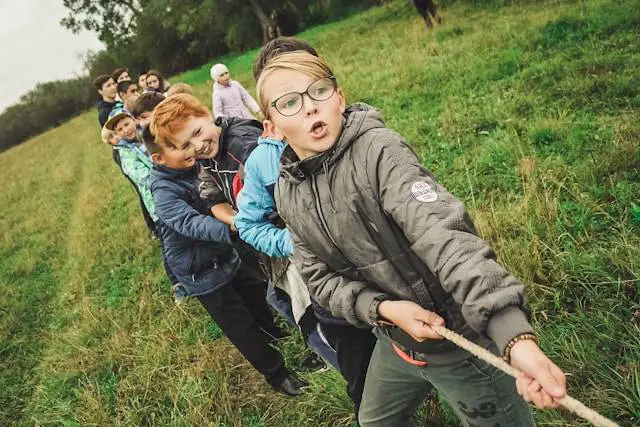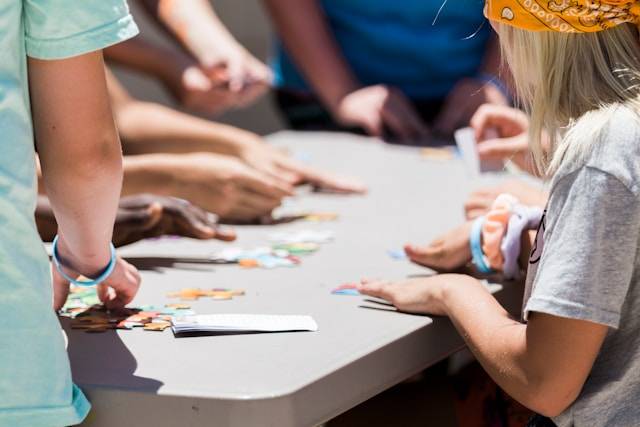Why Camp Experiences Help Build Independence and Confidence in Kids

Sending a child to camp often feels like a leap of faith for parents, but it can become one of the most rewarding experiences in a young person’s life. Camp offers an environment where children grow through exploration, social interaction, and new challenges. Away from home comforts and parental direction, kids learn how to trust their instincts, form friendships, and manage responsibilities. This blend of freedom and structure allows them to develop skills that shape their confidence, independence, and resilience long after camp ends.

Learning to Rely on Themselves
One of the most meaningful parts of a camp experience is the gradual shift from dependency to self-reliance. At home, parents often guide routines, solve problems, and provide immediate help. At camp, kids take charge of their own choices: what to wear, how to organize their time, and when to seek help. This independence builds slowly, often beginning with small decisions that grow into a sense of personal capability. Children learn to make their beds, keep track of belongings, and meet the expectations of a group. These daily actions teach responsibility in an environment that feels both safe and adventurous. Parents exploring Kirkland kids camp listings often find that programs emphasizing outdoor skills, teamwork, and personal goal-setting provide the best opportunities for their children to grow into confident decision-makers. By managing challenges without constant adult intervention, kids discover that they are capable of far more than they once believed.
Building Confidence Through New Experiences
Camp offers countless moments where children step outside their comfort zones. Whether they climb a rock wall, perform in a talent show, or paddle a canoe for the first time, each success strengthens their belief in themselves. These experiences show kids that courage is not about being fearless but about acting even when something feels difficult or unfamiliar.
As they tackle new challenges, children start to see mistakes as part of learning rather than signs of failure. A camper who falls off a paddleboard but gets back up develops grit and a growth mindset. This attitude carries beyond camp, influencing how they handle schoolwork, friendships, and family responsibilities. The sense of accomplishment that comes from mastering new skills is one of the strongest builders of lasting self-esteem.
Nurturing Social Bonds and Teamwork
Living and working with peers at camp offers lessons that go far beyond friendship. Group living encourages communication, cooperation, and empathy. Whether kids share a cabin, collaborate on a group project, or participate in a team sport, they learn to appreciate different perspectives and find common ground.
Conflicts occasionally arise, but these moments teach children to listen, compromise, and find respectful solutions. Counselors guide campers in navigating disagreements without stepping in to solve every issue, allowing kids to develop their own communication strategies. Over time, these experiences shape children into more understanding, patient, and confident individuals who can thrive in diverse social settings.
Discovering the Joy of Disconnecting

Camp provides a rare space for children to experience life without screens and constant digital connection. Instead of scrolling through devices, kids focus on the world around them – playing outdoor games, learning survival skills, or simply talking under the stars. This time away from technology encourages creativity and imagination in ways that screens rarely can.
The change of pace gives children room to listen to themselves and reflect on their thoughts. Without constant notifications or comparisons from social media, they rediscover the value of face-to-face interactions and simple pleasures. This natural rhythm helps them build confidence from authentic experiences rather than external validation.
Learning Resilience Through Challenge
Every camper faces moments that test their patience and determination. It might be missing home, working through a tough hiking trail, or trying to light a campfire. These challenges are designed to stretch comfort zones while still providing a support system of counselors and peers.
When a child feels the initial sting of homesickness but learns to overcome it, something powerful happens: they realize they can handle discomfort and still find joy. Children begin to associate challenges with growth rather than fear. This mental shift becomes one of the greatest gifts camp provides.
Carrying Lessons Beyond Camp
The benefits of camp extend long after the tents are packed away. Children return home with greater confidence in their abilities and a stronger sense of independence. Parents often notice that kids become more responsible with daily tasks, more open to trying new things, and more willing to help others.
The lessons learned through camp experiences form a foundation for future success. The self-trust cultivated through camp adventures prepares them to navigate life’s transitions with curiosity and courage.
Camp is far more than a summer pastime; it is a formative experience that shapes character and builds self-belief. Through independence, teamwork, and exploration, children learn to see themselves as capable individuals who can adapt to challenges and thrive in new environments. Whether roasting marshmallows by the fire or conquering fears on a high ropes course, each moment contributes to lasting confidence and personal growth.
